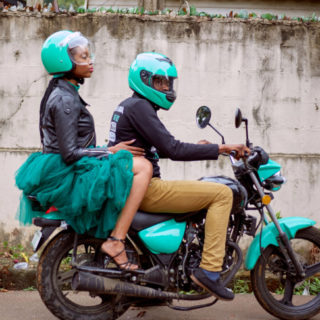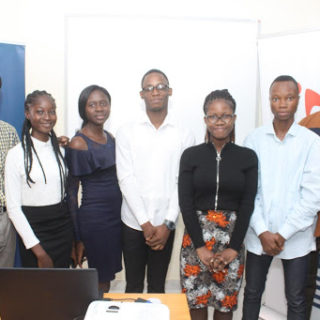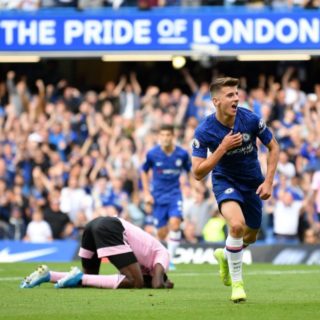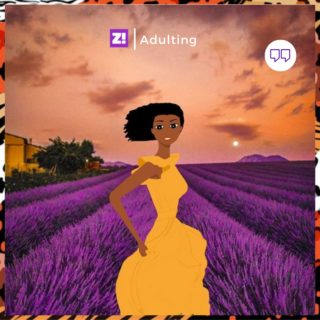The best hits may last forever but musicians’ careers don’t last very long.
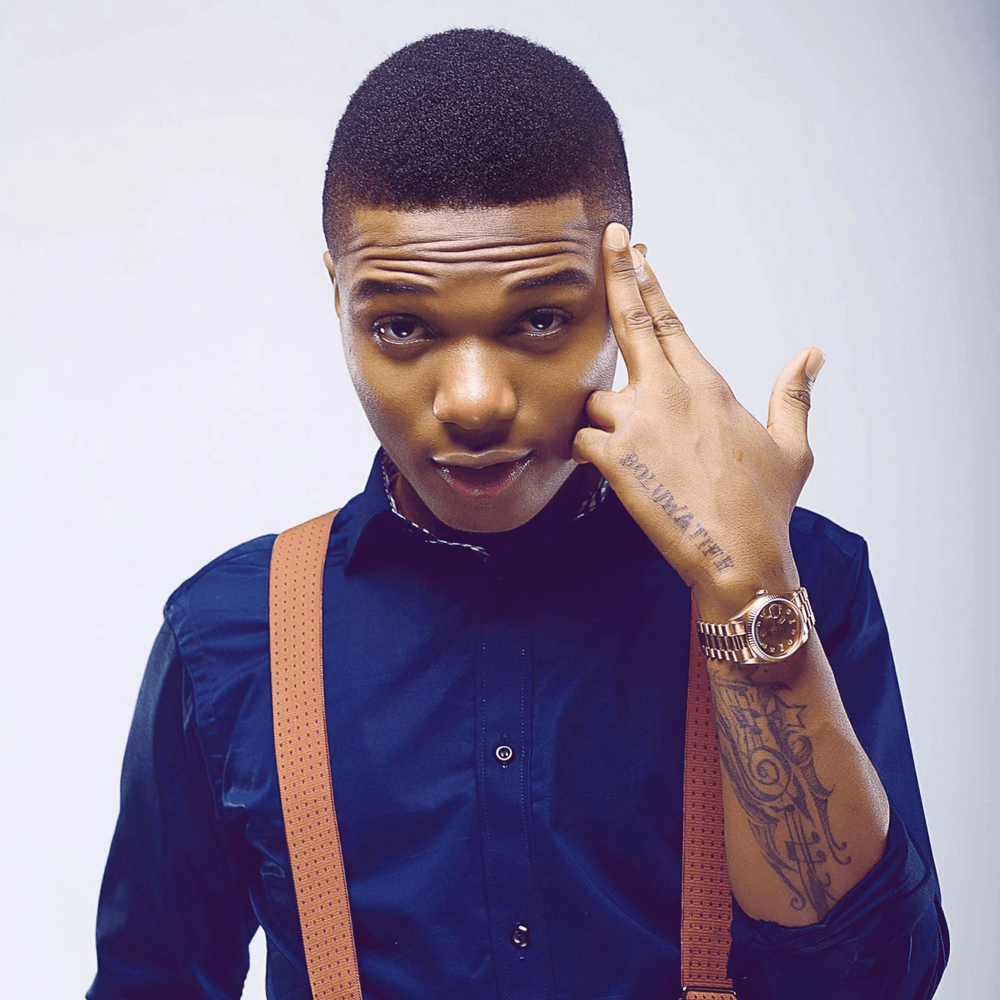
It’s why we have the ten-year rule. It’s an unspoken assumption that the best musicians have a peak period of 10 years. Everything before and after is simply a part of the journey.
That’s not to say there aren’t exceptions; it’s hard to put a time limit on vampires like 2baba for instance. That’s not talking about more timeless creators like King Sunny Ade.
Whether your career fades out in an IG scandal or you seemingly live forever, it all begins somewhere.
It’s easy to forget that once upon a time, your faves were nobodies. That’s until something happened. Here are the songs that launched your faves into our minds, mp3 players and the world.
Wizkid – “Holla At Your Boy”
Circa 2008, Wizkid was another studio rat with dreams of being the biggest artiste around.
A couple of collabs – “Fast Money, Fast Cars” with MI and signing with Banky W’s ‘EME’ put him in the conversation as the year wound down.
But it was the release of “Holla At Your Boy” that served the first true evidence that this kid had it.
I remember returning from school one day to see this preppy, charismatic teenager controlling my siblings through the tv. Nothing would remain the same.
Davido – “Dami Duro”
If you can look past the fact that Davido’s first few words as a musician were a lie, you’ll find that his first single, for all the shock value, was only an introduction.
Sure, the rumour mill got working quickly and reports of just how wealthy he really was began to make the rounds. But all that took a back seat when the behemoth that is “Dami Duro” was released.
For sheer impact and its role in launching his career, no song has come close in the years since – a fact that even Davido admits.
Olamide – “Eni Duro”
Looking back, it was almost as if the stars aligned for Olamide to show up. Years before, the first big indigenous Yoruba rapper had made his name. Coded Tunes, the clique he belonged to, was a Mecca of sorts for anyone trying to use Yoruba to find pop stardom.
There was ID Cabasa, Reminisce, 9ice, 2phat and soon enough, Olamide joined the team. Whether it was the learnings of his clique or sheer ability, Olamide’s first song did everything he could ever have hoped for. His use of slang and repeated nods to his Bariga roots made him a hometown hero overnight.
His witty delivery and humorous jabs grabbed the attention of even the most hard-headed ‘hip-hop’ heads. The Olamide of 2019 might be more inclined to give you groovy party jams than boastful bars. But when in doubt of what Badoo can do, ‘Eni Duro’ will always serve as a reference.
Burna Boy – “Like To Party”
Port Harcourt had known about Damini Ogulu for years. His first project “Burn Notice” and sleepers like “Freedom” had won him fans in his hometown.
But Lagos was a different proposition altogether–he’d need a new formula to crack the ruthless, saturated scene.
“Like To Party” was that formula brought to life. On his debut single on moving to Lagos with Aristokrat Records, Burna combined his influences to give us a song that sounded like nothing before it.
“Like To Party” was the beginning of Afro-fusion as we know it.
2face – “Nfana Ibaga”
Even vampires have their firsts. Today, 2baba feels like the one artist who’s always been here. I remember singing his songs as a primary school student. Decades later, I’m partying to Amaka and casting away every spirit of disappointment.
It’s easy to forget that once upon a time, 2face was a boy-band member trying to go start his own private plantation. Months of infighting meant the Platashun Boyz, arguably the biggest group at the time, was facing an inevitable split.
2face stuck his neck out and answered the question of whether he had enough to make it on his own with “Nfana Ibaga”.
Apart from launching his solo career, it also proved that outside of his best buds, Blackface and Faze, 2face had enough to make it on his own. And so began a period of beasting that continues, 15 years later.
Tiwa Savage – “Kele Kele Love”
Nigerian music has never been fair to women. They show up and brew up a storm with a hit or two, the scandals and rumours get in the way of good music and our ‘first lady’ becomes a ‘has-been’ in two years or less.
Those were the odds that Tiwa Savage was facing. What Tiwa had on her side, though, was international exposure. After working the backup circuit in the US, Tiwa had the right balance of defiant sexuality and familiar subject matter to claim her place. “Kele Kele” was her manifesto and it worked right.
Some praised the glaring focus on quality and her refreshing take on pop, others rebuked her for looking good in a body suit – either way, they were talking. Years later, Tiwa Savage still gets the people talking. A queen.
9ice – “Little Money”
Many fans might remember “Gongo Aso” as 9ice’s biggest moments, but there’s a reason why no-one ever described him as a ‘new kid on the block’ when his classic album was released.
Years before, 9ice had given us the first taste of his folksy, preachy take on afropop with ‘Certificate’. “Little Money”, the album’s standout was delightful.
9ice name-dropped Bariga, predicted he would make it to Channel O, all while admonishing people to manage their money and share it with their friends at the same damn time. Multitasking at its finest.
Runtown – Party(Like It’s 1980)
Runtown is another artist in the mould of 2face. He seems to exist independent of the happenings around him, in a world of his own where everything moves at his own pace. A big part of this is that the artist has constantly reinvented himself.
Today, he’s known as a hyper-melodic afro-fusion artiste, but the Runtown we met in 2012 made dancehall music, first and foremost.
Released in 2012, “Party (Like It’s 1980)” was a staple at raves, clubs and anywhere young people got together to have a good time.
Runtown’s rise to the top has been slow and steady. It would take years before his first massive hit came in “Gallardo”. But he had placed a marker for himself with “Party”.
Falz – “Marry Me” feat. Yemi Alade & Poe
Fresh from his time chasing the ‘Barrister’ tag in the UK and later, Nigeria, Falz’s transition to rapper did not happen as quickly as he would have wished.
His first mixtape, “Shakara” was largely ignored by everyone who wasn’t obsessed with finding new music. Songs like “Cool Parry” and “High Class” were also overlooked as gimmicky and ‘forced’.
“Marry Me” however was relatable enough to not suffer a similar fate. Supported by Poe and a prime Yemi Alade, Falz made a humorous take on Nigerian weddings and the pressure young people face to get married that made him a family brand overnight.
It’s no mistake that he’s still following that template today.
Wande Coal – Ololufe
There have been many versions of Wande Coal. There’s the young breakdancer from the OGD All-Stars videos. There’s Wande Coal of “Why Me?” – an optimistic team member playing video vixen in the music video for a hit he reportedly co-wrote.
The Wande Coal we know, love and are frustrated with today was first introduced to us on ‘Ololufe’, a love song that turned everyone into R&B singers overnight.
Most people had heard bits of Wande’s voice on D’Banj’s songs by this time, but ‘Ololufe’ exposed us to the singer’s strengths–his powerful voice and immense writing skills.
The clamour for more Wande was so strong at the time that Mo Hits was forced to release singles in quick succession, and eventually, the classic “Mushin 2 Mo’Hits”.
While you’re here, let me tell you about the Zikoko Pop Newsletter.
It’s called Poppin’ – everything you should know happening in pop culture, plus recommendations, our fire playlists, info on all the best parties and freebies you won’t get anywhere else.
Do the right thing and sign up, my gee.

